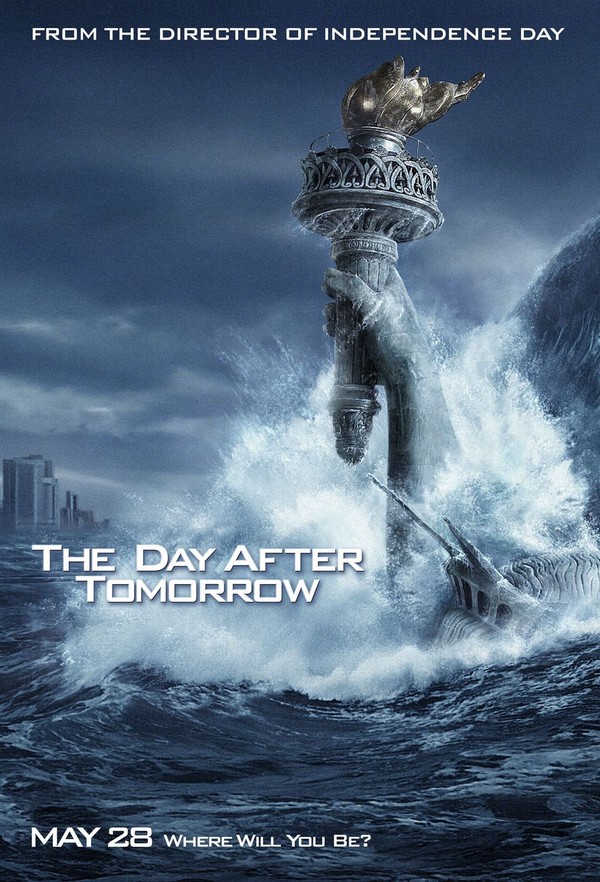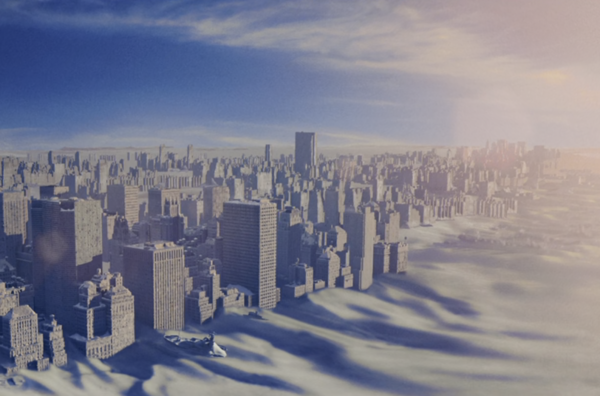This short phrase has always been beside us since the day we are born. It offers us many benefits. However, we usually overlook what is important and in front of us. Nature is an indispensable part of life. Humans live with nature from the moment they are born. They see and feel the beauty of nature. At the same time, they live better from the use of natural resources. Sadly, people don’t have much interest in nature and far too often believe it will last forever. Now is time to pay attention to nature, our Giving Tree.

Book
“It is so still as if all the creatures had all gone away.”
-Rachel Carson
<Silent Spring (1962)>
Imagine a town where all the creatures live in harmony with the environment, where the ground is fertile for growing crops, the trees are green, the animals run free in the forest, and people hear and enjoy birds singing. Then imagine, it all suddenly falls apart and the town is in ruins. The grains don’t grow, the trees wither, animals die, and the birds no longer sing. Author of Silent Spring suggests this is not a distant future, and humans’ abusive use of chemicals is the direct cause of this possible disaster. Nature formed over the course of hundreds of millions of years since the birth of the Earth. A balance between nature, created for all creatures to benefit from, and all those who live on Earth must be ensured throughout eternity. However, human beings are trying to control the environment and nature. For example, they kill harmless insects simply because they are annoying. Most people do not realize that effective insect control had to be done by nature not by humans. Controlling through weather, climate, and innate enemies is the proper way to control insects. People use chemicals for which nature cannot defend against. As a result, the selfish mind of humanity is revealed clearly. The destruction of ecosystems creates chemical-resistant insects, and eventually the released chemicals will reach up the food chain to humans.
Recommendation
How many chemicals do humans use daily? Just think of the number of times you have seen someone spray insecticides to thwart off bugs in summer. Farmers often use pesticides and herbicides. Rachel Carson, author of this book, strongly criticizes the claim that use of chemicals is necessary. She opposes the use of chemicals, but does not say forthrightly that people must stop their usage altogether. Instead, people must be made aware of their dangers and the side-effects and use an appropriate amount. In the 1960s, when the book was written, the use of toxic substances and chemicals was a common trend. More than 50 years have passed, but the current situation is not much different. People look to chemicals out of convenience and destroy organic ecosystems. The book allows readers to think about the dangers of using chemicals. It also imprints on readers the idea that choosing chemicals out of convenience will eventually cause harm to humans because we are a part of the same ecosystem. This reporter would like to recommend this book not only to those interested in the environment but to everyone in society. It offers readers a great and precious opportunity to contemplate the use of unnecessary and toxic chemicals.

Movie
“We were wrong. I was wrong.”
-Becker
<The Day After Tomorrow (2004)>
While exploring glacier cores in Antarctica, climatologist Jack Hall noticed an abnormal change in the Earth's atmosphere, and a short time later, he presented his findings on the planet's temperature drop at an international conference. He said rapid global warming will bring about the melting of glaciers in the South and North Poles and changes to the flow of ocean currents. He warned of a massive disaster that would eventually lead to the entire planet covered with glaciers. His presentation was ignored and created great conflict with his boss. After a while, abnormal weather conditions started being reported on TV such as hail falling in Japan. Jack learns that the ocean temperature has dropped by 13 degrees and is terrified that his predicted ice age will soon come. Jack then gets a call from the White House as he tries to leave to save his son, who is in New York for a quiz contest, from a looming catastrophe. At the White House briefing, Jack makes a bold argument that for the survival of humanity, it is necessary to abandon people living in northern areas because there is simply no time to rescue them, but instead move as many people as possible from the central regions further south below the Mexican border. People are tossed into uncontrollable chaos. Jack then heads up north to New York to rescue his son. What will become of Jack as he treks north to save his son? Will humanity overcome the Earth's wrath?

Recommendation
The film examines what would happen if an abnormal climate phenomenon were to occur on Earth due to rapid global warming. The scenes show various abnormal weather phenomena such as hurricanes, tornadoes, hail, heavy snow, and heavy rains that make the audience feel helpless in front of furious Mother Nature. With the rapid development of civilization, the Earth's environment has worsened. The climate is changing and pollution is worsening. The film shows clearly that abnormal phenomena will become more serious as time passes. Humans accelerate abnormal phenomena through acts that increase global warming. Humans spend more on fuel and generate more electricity by using more resources, but they do not truly realize what they are doing to nature. They ignore the cries for help by nature. This movie lets audiences feel guilty about being indifferent to environmental issues while they enjoy the convenience of nature without concern for it. The message from the film is fearful and horrible because it is so realistic, but the message is important and everyone should realize it quickly. As humanity is helped by nature, this reporter recommends watching <The Day After Tomorrow> in order to ponder deeply worrisome and immediate environmental issues.
Kim Lee Hyunmin / Editor-in-Chief
smt_lhm@sookmyung.ac.kr
Kwak Lee Shinyoung / Woman Section Editor
smt_lsy@sookmyung.ac.kr


